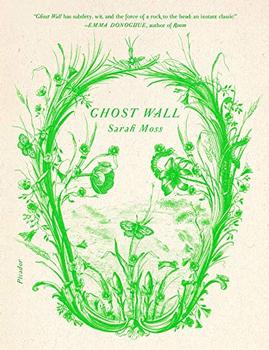
Together, they will spend a week living as close as possible to Iron Age life. They join an academic, Professor Slade, and his three students, Molly, Pete and Dan. Silvie's father, Bill – a bus-driver by day and part-time history hobbyist – has coerced Silvie and her mother into accompanying him on an immersive archaeology experiment in rural Northumberland. It’s an intoxicating concoction inventive, intelligent, and like no other author’s work.Silvie, the novel's 17-year-old narrator, propels the story with an almost stream-of-consciousness urgency, her speech peppered with northern patois. Domestic violence finds its roots in ancient ritual sacrifice, and contemporary misogyny and xenophobia is shown to be just as grimly powerful as Iron Age superstition. So too, like Moss’s previous book – the magnificent The Tidal Zone, a different kind of state of the nation novel – Ghost Wall is full of uncomfortable truths about the modern world. Not only does Moss utilise a similarly isolated setting here in Ghost Wall, one in which the tendrils of the past wrap themselves around characters in the present with potential deadly consequences – here, Silvie is haunted by the story of a bog girl, a young woman who met a violent death – this new novel showcases the same assured ratcheting up of tension that made Cold Earth so chilling a read. As a mysterious but deadly virus wrecked havoc in the wider world, the members of the dig became as isolated as the medieval Greenlanders they’re investigating.

There are echoes here of Moss’s first novel, the nightmarish post-apocalyptic thriller Cold Earth, which was set on an archaeological excavation in Greenland. They dress in shapeless, “scratchy” tunics, live in a purpose built camp, and forage for food on the surrounding land – the descriptions of which are beautifully evocative, lush and wild. They’ve come together to enact Iron Age life. Silvie and her mother and father – a bus driver who’s a keen amateur historian, obsessed with ancient Britain – have joined forces with a Professor Slade and three of his university students, Molly, Pete and Dan.

In the wilds of Northumberland, a small group is engaged in an exercise in experimental archaeology. Narrated by 17-year-old Silvie, the action in the novel takes place over the course of a few days at the height of summer. But never at the expense of what’s a gripping narrative.

At a mere 160 pages, Ghost Wall may look unassuming, but it’s testament to Moss’s notable talents that within these she’s able to address the huge topics of misogynistic brutality and violence, gender inequality and class warfare, not to mention the lessons of history.

How she hasn’t been nominated for the Man Booker Prize continues to mystify me – and this year is no exception. Ghost Wall, Sarah Moss’s sixth novel, is further proof that she’s one of our very best contemporary novelists.


 0 kommentar(er)
0 kommentar(er)
